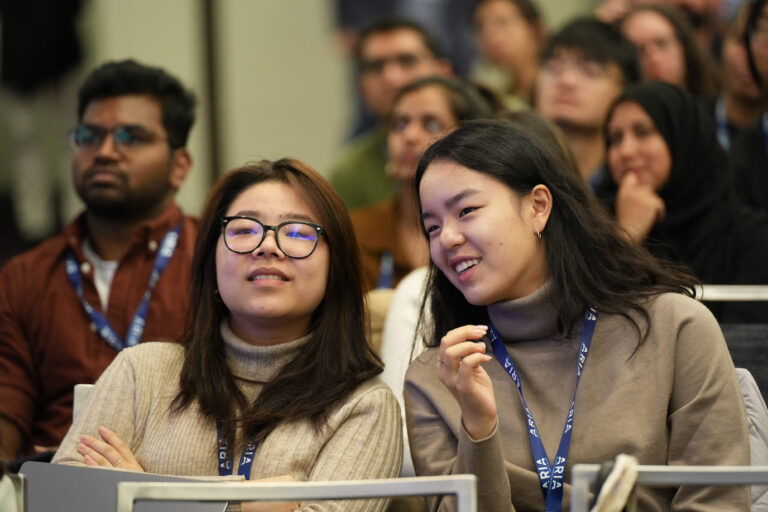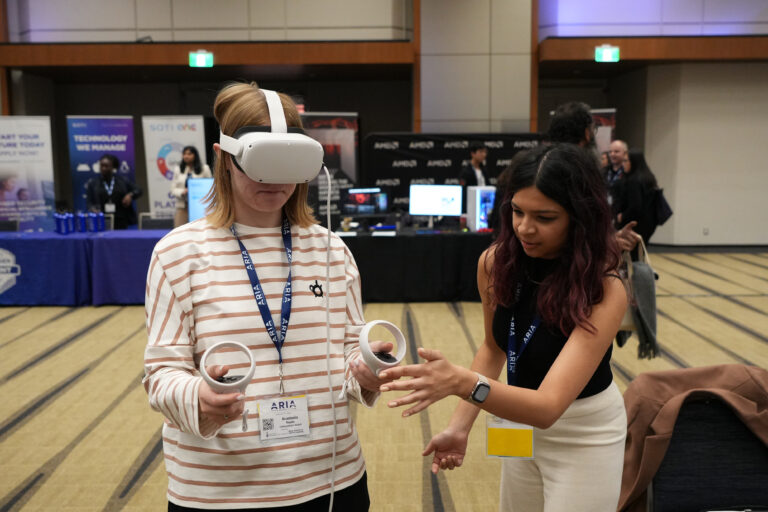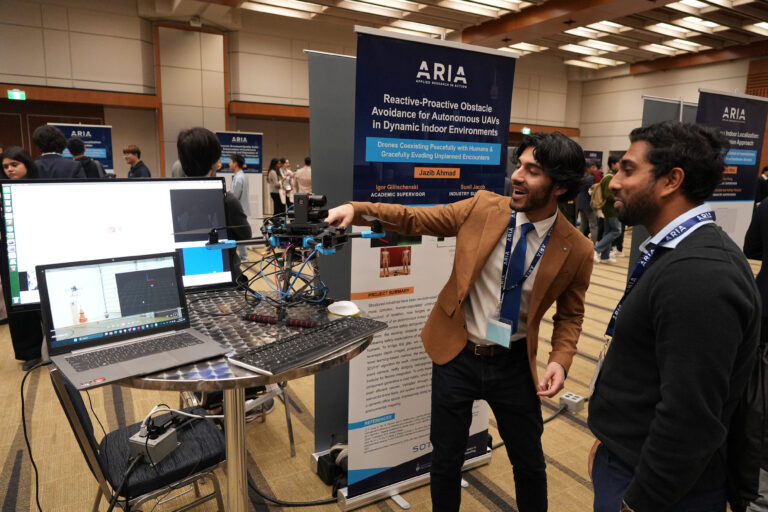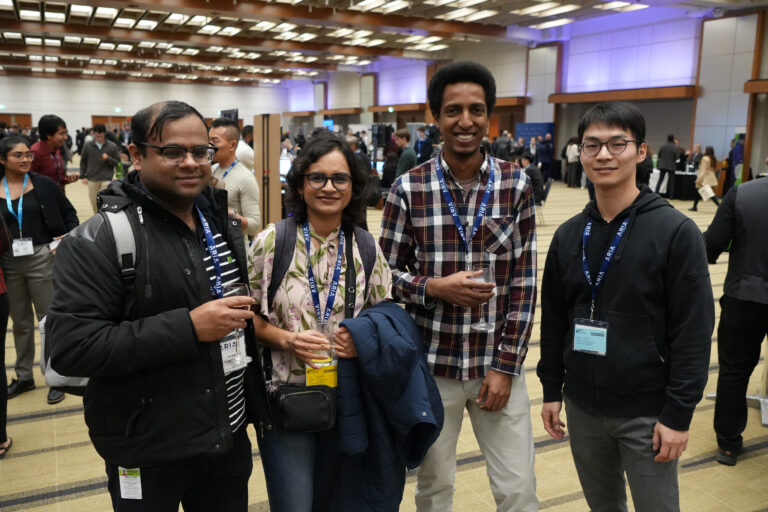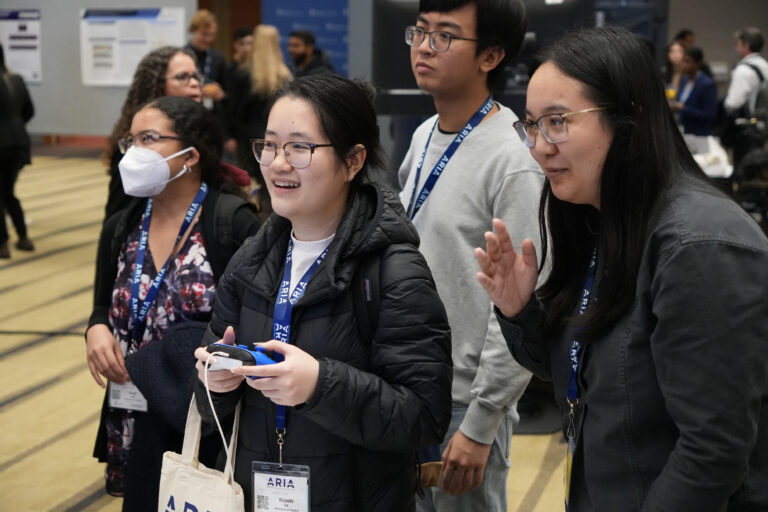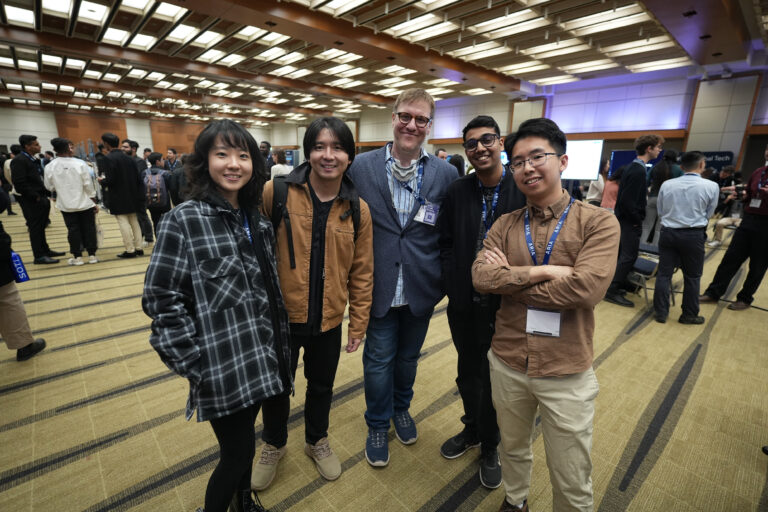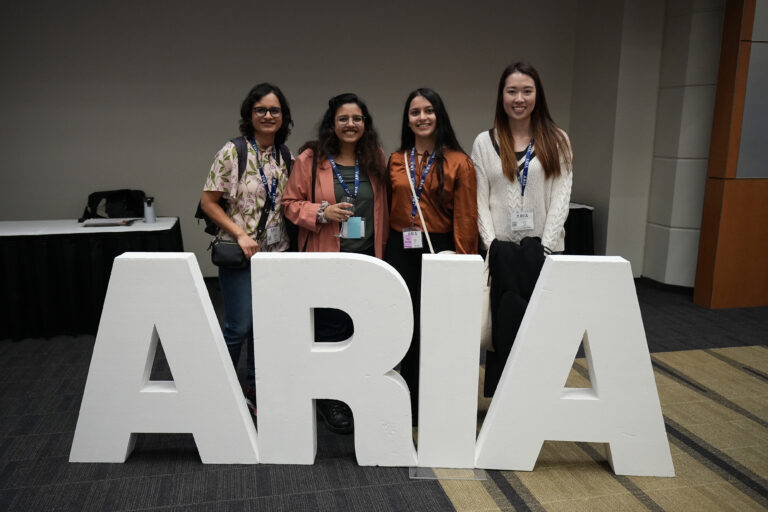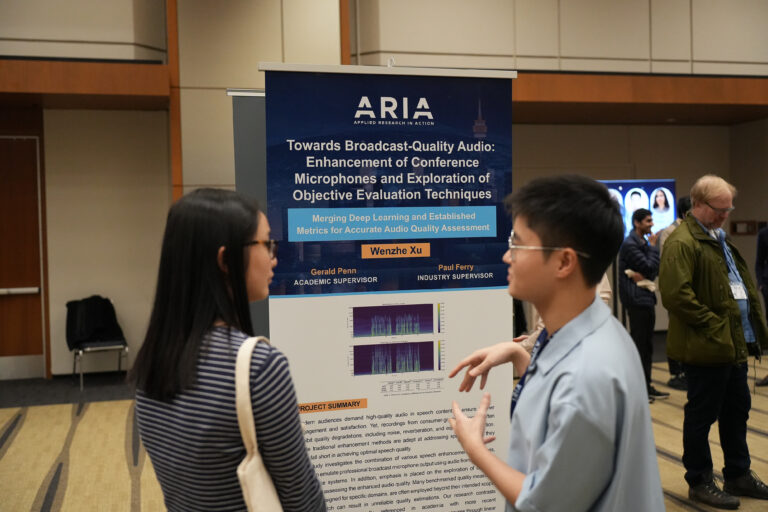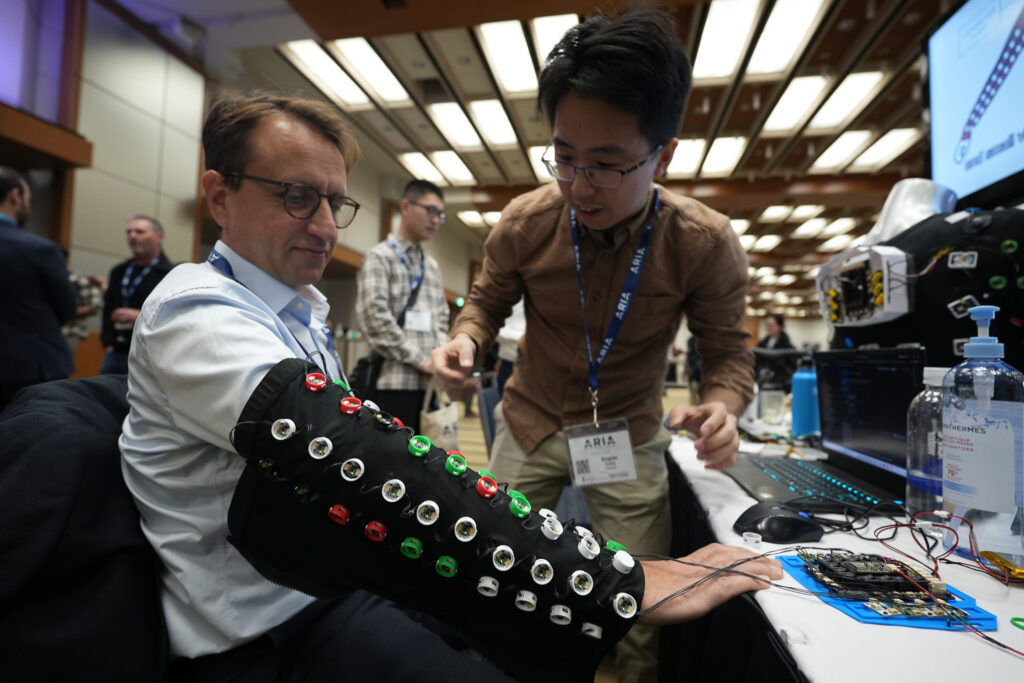
By: Krystle Hewitt, Department of Computer Science
Improving text-to-speech generation for low-resource languages. Using deep learning for early septic shock detection. Enhancing retail analytics through AI.
These were among the 100-plus examples of tech innovation on display at the tenth annual Applied Research in Action (ARIA) showcase on November 16 at the Metro Toronto Convention Centre.
Hosted by the University of Toronto’s Department of Computer Science Master of Science in Applied Computing (MScAC) program, ARIA highlights cutting-edge technological research and advancements from students, faculty and a wide range of key players in Toronto’s technology industry. The event has grown significantly in recent years, attracting over 1,100 registrants in 2023.
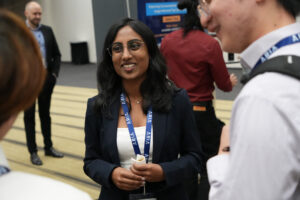
At ARIA, MScAC student Anusha Prabhudev presented her research with industry partner Crossing Minds on ‘DataStats,’ an automated framework designed to enhance the development of personalized recommender systems. Drawing on practical machine learning techniques, their work offers a suite of tools intended to elevate decision-making from intuition-based or trial-and-error methods to more data-driven approaches.
“ARIA was momentous. It provided a unique platform to present our research to this varied audience, allowing us to gain invaluable feedback,” said Prabhudev. “What I appreciated most about the showcase was how it was meticulously curated with the best interests of students in mind, offering us opportunities to network, collaborate and envision our future paths in the tech industry. This exposure is crucial for budding researchers like me, as it paves the way for recognition, enables potential collaborations and inspires us to drive future innovations in our respective fields.”
MScAC is a multi-disciplinary 16-month program with partnerships between the Department of Computer Science and the departments of Statistical Sciences, Mathematics, Physics, Cell & Systems Biology, and the faculties of Engineering and Medicine.
As part of the MScAC program, students participate in an eight-month applied research internship, with industry partners across a range of sectors including health care, financial technology, information and communication technology, and entertainment. The ARIA showcase is a culmination of their internships and an opportunity to present their research and development projects that lie at the intersection of academia and industry.
The list of companies seeking partnerships with the program is consistently growing. “The MScAC program has a great pool of talent and we’re going to continue hiring interns through it,” said Xiaojun Su, North America senior data science manager at Unilever. “The students are trained with very practical skills and using cutting-edge technologies. We can place them directly into research and development or production tasks.”
Research-stream graduate students in the Department of Computer Science also had the opportunity to present their work, including master’s student Chuyi Hou whose focus is on human-computer interaction. His project proposes a hardware add-on to existing VR headsets that can compensate for image slippage when people move their head.
“I really like gaming and VR. My passion is about improving the current hardware that can lead us to the future,” including the metaverse, explained Hou, who added ARIA is an opportunity to make connections.
Eyal de Lara, chair of the Department of Computer Science, noted that this year’s ARIA showcase speaks to the strength of U of T’s computer science community and the ongoing research that’s advancing the discipline.
“This is by far the largest ARIA we’ve ever held, and the Metro Toronto Convention Centre was a great choice — we’re in the heart of the community,” said Arvind Gupta, academic director, professional programs in the Department of Computer Science. “It’s great that hundreds of our industry partners and alumni are here. Our partners tell us that many of their people come from MScAC as they continue to boost their participation in the program. We are proud that 90 per cent of our alumni stay and work in Toronto’s tech space.”
The event featured keynote talks from Professor Raquel Urtasun, founder and CEO of Waabi who spoke about her company’s approach using generative AI to train autonomous driving technologies and Assistant Professor Alex Mariakakis, who shared his research using sensing technologies to better tackle issues related to health and well-being.
Listening to the talks and exploring graduate-level research was an opportunity for third-year computer science undergraduate Jamie Yuan, who’s interested in AI in health care, to consider her future path.
“I think it prompts me to think about how I might want to apply my knowledge and my skills,” said Yuan. “It’s been a pretty motivating experience seeing all this cool work everyone’s doing and seeing how it can actually help people in real situations.”
— With files from Jacqueline Martinz
